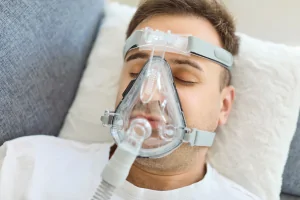In this era of increased awareness about veteran health, understanding the intricate connections between physical ailments and mental health conditions is crucial. One such nexus worth exploring is the relationship between gout and post-traumatic stress disorder (PTSD) in the context of VA disability claims. Leah Bucholz from Prestige Veteran Medical Consulting provides valuable insights into how gout, a condition which may lead to a painful form of arthritis, is related to PTSD and alcohol use disorder, conditions frequently affecting veterans. Let’s dive deeper into this complex interplay and its implications for veterans seeking VA disability benefits for gout.
Table of Contents
Understanding Gout
Gout, as per the Mayo Clinic, is a form of arthritis characterized by sudden and excruciatingly painful attacks. These attacks manifest as pain, swelling, redness, and tenderness primarily in the joints, often affecting the big toe. The condition arises from the formation of urate crystals due to elevated levels of uric acid in the body. Factors contributing to this include dietary choices, alcohol consumption, obesity, certain medications, and underlying medical conditions like kidney disease.
Prevalence of Gout Among Veterans
Gout is a prevalent condition among veterans due to factors like high rates of obesity, hypertension, and diabetes, as well as dietary habits and side effects of medications related to PTSD. Veterans may also experience stress and trauma, which can contribute to inflammation and metabolic imbalances, increasing the risk of gout.
In a 2020 study examining gout in the veteran population, researchers found that, in 2014, the prevalence of gout in the VHA was 5.8% compared to 4.2% in 2005. Gout was most common among men, older individuals, and non-Hispanic black patients. Gout is more common among veterans, with a prevalence of 5.8% in the VA, compared to nearly 4% in the general U.S. population.
Linking Gout to PTSD and Alcohol Use Disorder
Leah Bucholz highlights the connection between gout and mental health conditions, particularly PTSD and alcohol use disorder. The VA recognizes that a service-connected disability can lead to the development of multiple related conditions.
Veterans grappling with PTSD may experience weight gain or obesity as a consequence of their mental health struggles. Compensatory eating habits, lack of motivation for physical activity, and social phobias can all contribute to weight gain.
Additionally, alcohol consumption, often used as a coping mechanism, further exacerbates the risk of developing gout due to its impact on uric acid levels.
Research Insights
Various research studies underscore the relationship between alcohol consumption, obesity, and the development of gout. An April 2022 study discusses excessive alcohol consumption as a significant contributor to gout, while another study from April 2014 explores the correlation between alcohol intake and recurrent gout attacks. Furthermore, research articles delve into the association between obesity and gout, with specific focus on the impact of PTSD on weight gain and its implications for gout development.
Implications for VA Disability Claims
In the realm of VA disability claims, establishing a connection between gout and service-related conditions such as PTSD is paramount. While gout may manifest during active duty or as a secondary consequence of existing medical conditions, veterans must effectively articulate the nexus between their military service experiences, mental health struggles, and the onset of gout. Documenting how PTSD-induced weight gain or alcohol use contributed to the development of gout strengthens the case for VA disability benefits.
Other Primary Conditions Causing Gout as a Secondary Disability
Gout is an inflammatory arthritis caused by uric acid crystals accumulating in joints, resulting in painful flare-ups. It can be secondary to several primary conditions, such as:
- Chronic kidney disease (CKD) reduces the body’s ability to filter uric acid, leading to its buildup in the blood and triggering gout.
- Obesity leads to gout by increasing uric acid production and reducing excretion.
- Type 2 diabetes, due to insulin resistance, can also elevate uric acid levels, leading to gout.
- Hypertension and certain medications, like diuretics for high blood pressure, can worsen the condition.
- Metabolic syndrome, which includes high blood pressure, obesity, and insulin resistance, greatly heightens the risk of developing gout due to elevated uric acid levels.
- Joint trauma, including injuries, repetitive strain, or surgery on weight-bearing joints, can worsen gout symptoms by increasing joint stress and inflammation.
VA Disability Rating Criteria for Gout
The VA rates gout as a form of arthritis under 38 CFR § 4.71a, using Diagnostic Code 5002. VA ratings are primarily based on the severity and frequency of flare-ups, as well as the impact on a veteran’s health. The gout VA rating criteria are as follows:
- 100% Disability Rating – Totally incapacitating with active joint involvement and constitutional symptoms.
- 60% Disability Rating – Less severe but with severe health impairment, including weight loss, anemia, or incapacitating flare-ups four or more times a year.
- 40% Disability Rating – Definite health impairment supported by examination or three or more incapacitating yearly flare-ups.
- 20% Disability Rating – One or two flare-ups per year with a well-established diagnosis.
The VA also assesses joint limitations caused by gout under Diagnostic Code 5017, rating it as degenerative arthritis. For example, joint limitations in knees or other major joints are rated based on the degree of restricted motion, with specific criteria for flexion and extension.
Additionally, X-ray evidence of gout affecting two or more major or minor joints may result in a 10% or 20% rating, depending on whether exacerbations are documented. Therefore, proper documentation of all flare-ups and symptoms is critical in determining the VA disability rating for gout.
Establishing a Secondary Service Connection
To establish a service connection for gout as a secondary condition to PTSD with the VA, you must show that your gout is either caused or aggravated by your PTSD. Veterans seeking VA disability compensation often submit VA Form 21-526EZ on their own or with the assistance of an accredited legal professional including all necessary evidence. Here are some of the steps that many veterans and their legal advocates may consider:
- Diagnosis of Gout: Ensure you have a medically confirmed diagnosis of gout from a healthcare provider.
- Establish a Link (Nexus): Demonstrate that your PTSD has caused or worsened your gout. For example, showing that PTSD medications, like antidepressants, can lead to weight gain or lifestyle changes, increasing the risk of gout. If PTSD has aggravated gout symptoms, highlight this.
- Medical Opinion: Obtain a nexus letter from a healthcare provider stating it’s “at least as likely as not” that PTSD has contributed to or aggravated your gout.
- Supporting Evidence: Collect all relevant medical records, prescription histories, statements from fellow service members and documentation of lifestyle changes after your PTSD diagnosis.
After submitting your claim, the VA may schedule a C&P exam to evaluate the severity of your gout and its connection to PTSD. If your VA disability claim is denied, you can appeal the decision, requesting a higher-level review, or appealing to the Board of Veterans’ Appeals. Consider working with a Veterans Service Officer, attorney, or medical expert to strengthen your secondary-service connection and provide additional medical evidence if necessary.
Gout C&P Exam for VA Disability
To secure a VA disability rating for gout, the VA will typically schedule a Compensation and Pension (C&P) exam. During this exam, a medical professional will review your medical history, examine your affected joints, and inquire about the frequency and severity of flare-ups. It’s crucial to explain how your condition is related to your military service.
Bring relevant medical and service records to support your VA disability claim. These records help establish a service connection for your gout. After the review, the VA doctor will complete a Disability Benefits Questionnaire (DBQ).
TDIU for Gout
Veterans with gout as a secondary condition may qualify for Total Disability based on Individual Unemployability (TDIU) if their condition prevents them from maintaining substantially gainful employment. TDIU provides compensation at the 100% disability rate, even if the combined rating is below 100%.
To be eligible, veterans need one service-connected disability rated at 60% or more, or two disabilities with one rated at 40% and a combined rating of 70% or more. Veterans can apply using VA Form 21-8940 and may seek legal assistance to strengthen their claim.
Conclusion
The intersection of gout, PTSD, and alcohol use disorder in the context of VA disability claims underscores the need for comprehensive medical documentation and understanding. Veterans navigating the VA disability claims process must leverage research findings, independent medical opinions, and personal narratives to substantiate their cases effectively. By elucidating the intricate interplay between physical and mental health conditions, veterans can secure the VA disability compensation and resources they rightfully deserve.
In conclusion, Leah Bucholz’s insights shed light on a crucial aspect of veteran health, emphasizing the need for holistic approaches to disability claims adjudication. Gout, often overshadowed by more visible conditions, warrants attention within the framework of service-related disabilities, particularly in the context of mental health comorbidities like PTSD and alcohol use disorder. As the landscape of veteran healthcare evolves, acknowledging and addressing these complex interactions becomes imperative for ensuring comprehensive care and support for our nation’s heroes.
Also read: What to Expect in a Prostate Cancer C&P Exam
At Prestige Veteran Medical Consulting, a veteran-owned company, we specialize in Independent Medical Opinions (IMOs) known as Nexus letters.
Our purpose is to empower YOU, the veteran, to take charge of your medical evidence and provide you with valuable educational tools and research to guide you on your journey.
Understanding the unique challenges veterans face, our commitment lies in delivering exceptional service and support.
Leveraging an extensive network of licensed independent medical professionals, all well-versed in the medical professional aspects of the VA claims process, we review the necessary medical evidence to incorporate in our reports related to your VA Disability Claim.
Prestige Veteran Medical Consulting is not a law firm, accredited claims agent, or affiliated with the Veterans Administration or Veterans Services Organizations. However, we are happy to discuss your case with your accredited VA legal professional.
















